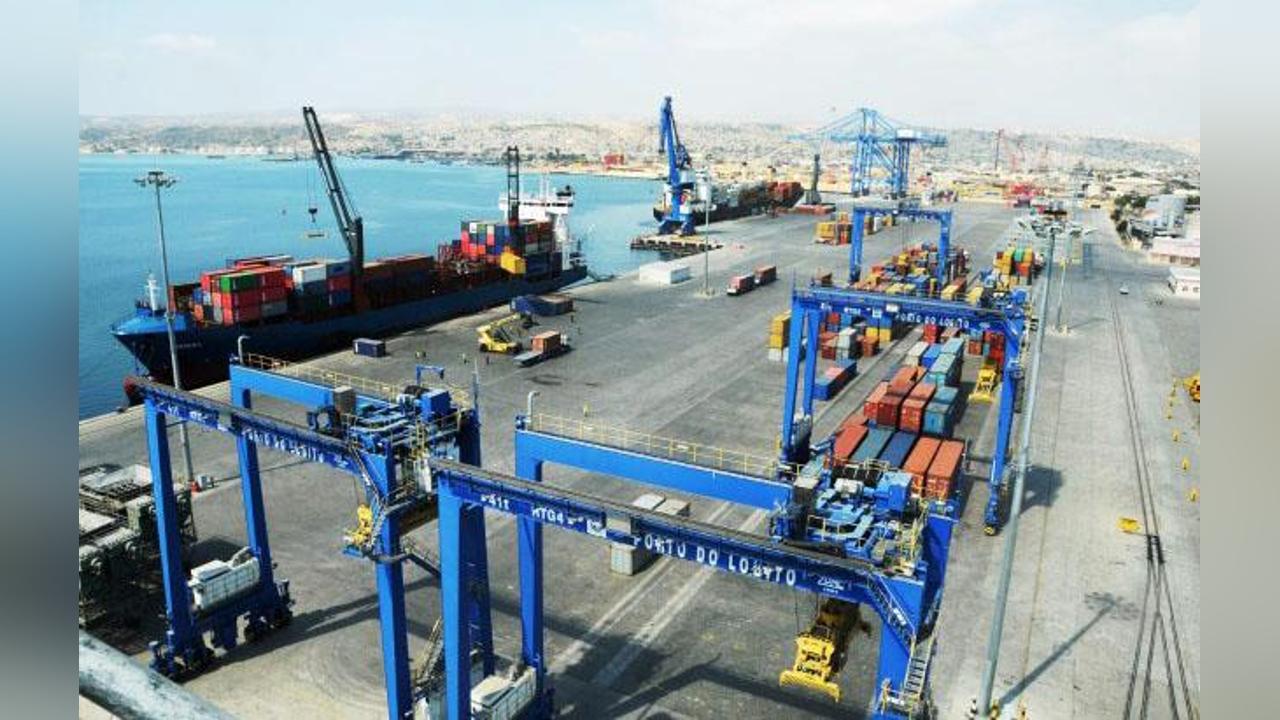Africa-Press – Angola. Commercial exchange in the southern African sub-region will gain new impetus following the signing, this Tuesday (4th), in this city, of the contract for the transfer of the concession of rail services and logistics support for the Lobito Corridor.
The Lobito Atlantic Railway, the winning consortium of the international tender to operate the Corridor, on November 4, 2022, is formed by the companies Trafigura, Vecturis and Mota-Engil.
The consortium plans to increase daily frequency to 50 trains over a period of 30 years and guarantee 1,600 direct jobs.
It will be responsible for transporting large loads, such as minerals from the Democratic Republic of Congo and Zambia, as well as maintaining infrastructure (workshops, the railway line).
Privately managed, the Lobito Corridor includes the Port of Lobito, the Mineiro Terminal, the Catumbela Airport and the Benguela Railway.
Given the strategic role for regional economic development, more than two billion dollars were invested in the rehabilitation and modernization of infrastructure and traffic in the Lobito Corridor, with a view to boosting the transport of various goods, benefiting the three bordering countries .
The Angolan Government has in its portfolio the completion of the feasibility study for the construction of the 259-kilometre line, which will connect Angola to Zambia, starting from the municipality of Ruacano (Moxico), to the border region of Jimbe (Zambia), a process which awaits, until now, the launch of a public tender.
The recovery of the railways in Zambia and the DRC is fundamental to allow their interconnection to the CFB, in the Luau area, on the Angolan border, and, with that, revitalize the transport of ore to Lobito.
With regard to the two main infrastructures in the corridor, namely the Commercial Port of Lobito and the CFB, they prepared themselves to face the challenge ahead, with the increase in cargo movement in the region.
The Lobito Corridor presents a strategic alternative route to the Zambian and DRC export markets and offers the shortest route linking the main mining regions of the two landlocked countries.
In Angola, it connects 40 percent of the country’s population, boosting large-scale investments in agriculture and trade in the provinces of Benguela, Huambo, Bié and Moxico, regions crossed by the CFB.
The award of the Lobito Corridor to the consortium made up of the companies Trafigura, Vecturis and Mota Engil brings relevant benefits to the country, such as the direct impact on the development of industries that are heavily dependent on the logistics chain, such as agriculture and mines, and the consequent creation of jobs in each of these areas.
This infrastructure will also create opportunities for the development of small businesses adjacent to rail transport and a competitive rail alternative to road transport. This alternative is capable of contributing to the reduction of freight transport tariffs.
Financially, its operation will allow rail transport “to bring a set of positive benefits, contributing to local and regional development, around the railway line, and may represent a contribution to the Gross Domestic Product, estimated between 1, 6 to 3.4 billion dollars.”
The technical capacity and financial strength of the companies that make up the consortium are a guarantee for the correct operation of the transport of goods in the Lobito Corridor.
The Belgian company Vecturis is a private railway operator that provides passenger, mineral and freight transport services anywhere in the world. Founded in 2006, it is one of the most experienced railway operators in the market in private railway operations in emerging economies and already operates in countries such as South Africa, Brazil, Russia, among others.
Switzerland’s Trafigura, founded in 1993, is one of the largest physical commodity trading groups in the world. It also owns and operates several industrial assets, including the fuel storage and distribution company Puma Energy. It currently employs over 13,000 people in 48 countries.
For its part, the Portuguese company Mota Engil has been operating in the Angolan market for more than 70 years, in the Engineering and Construction sector.
CFB Responsibilities
The Benguela Railway will be responsible for transporting passengers and lighter loads.
The CFB has 67 stations, along a railway line with 1,344 kilometers, crossing the provinces of Benguela, Bié, Huambo and Moxico.
It has a control centre, located in Lobito, to interact with trains via the internet, wherever they are located, workshops in Huambo and Lobito, as well as hospitals and medical posts for their workers.
Port of Lobito towards development
The Commercial Port of Lobito, in the province of Benguela, is making large investments, focused on creating the conditions to become Porto Senhorio, according to its Chairman of the Board of Directors, Celso Rosas.
As a landlord port, in English, the Port of Lobito will only take care of public management and the reduced movement of passengers and commercial products, while the private sector will be responsible for port infrastructure, in the form of a concession. .
This situation, according to the PCA, will lead the Port Administration to have as its main attributions those of regulating and supervising the activity of the port, exercising a role of Port Authority.
The Port of Lobito has as its main infrastructures, the multipurpose terminal (general and containerized cargo), the ore carrier and the dry port.
For More News And Analysis About Angola Follow Africa-Press






